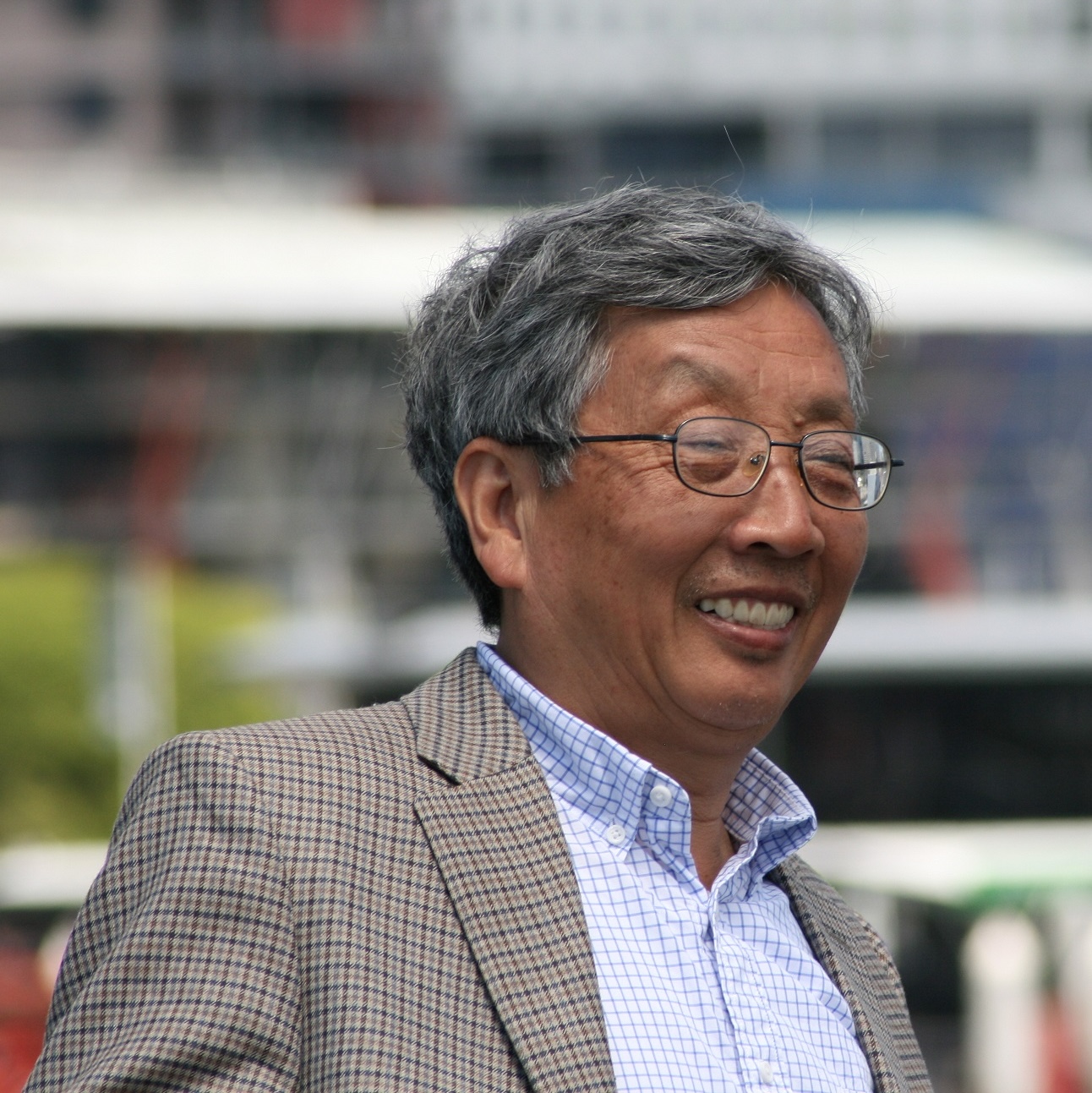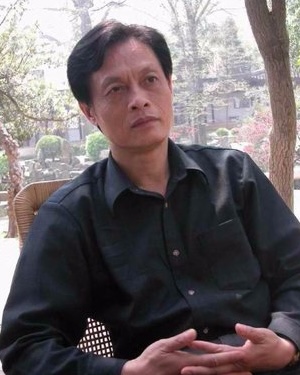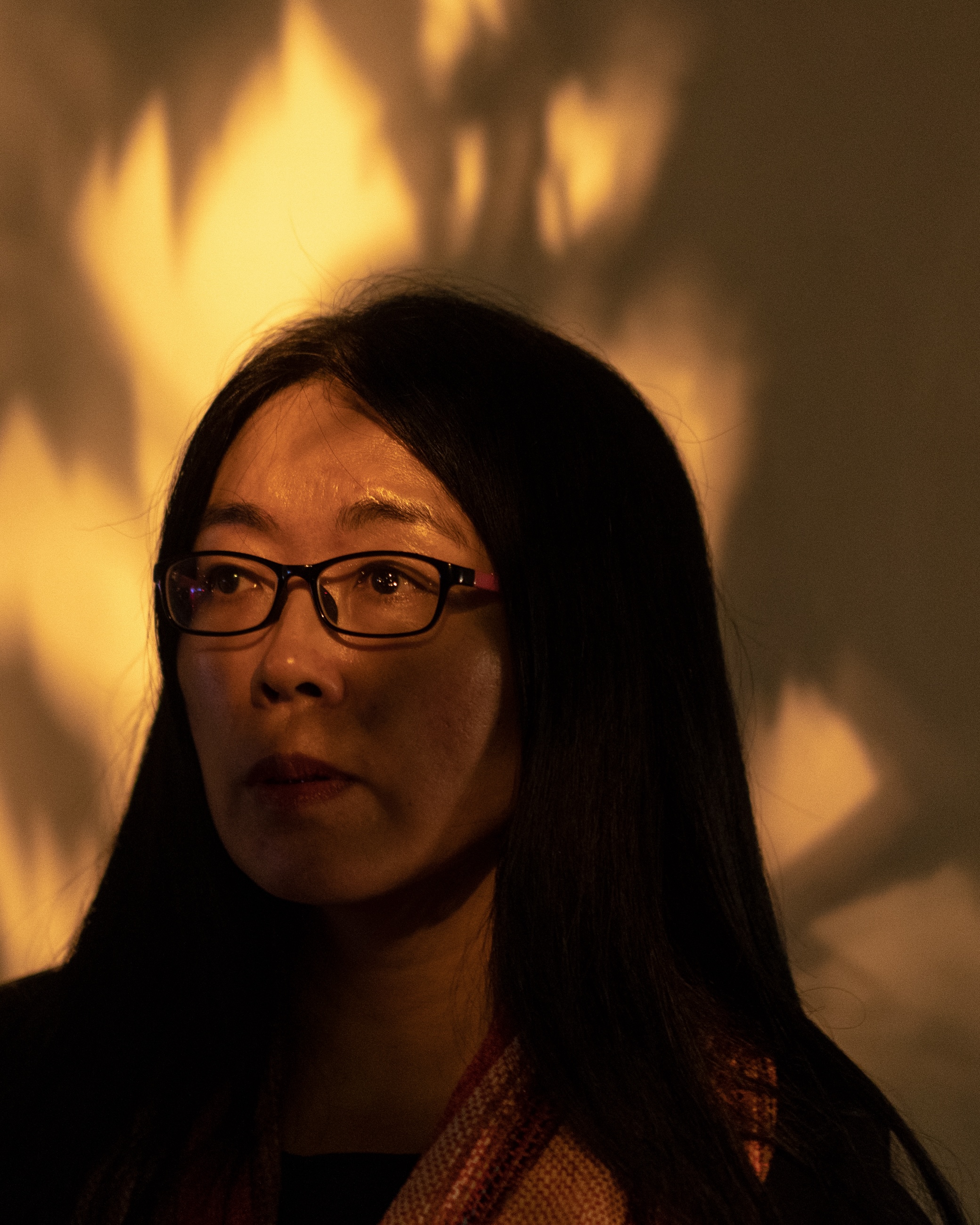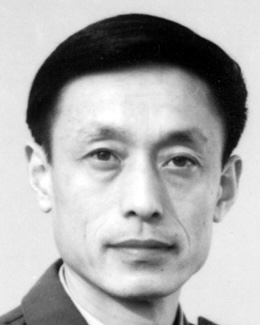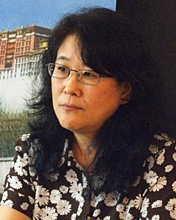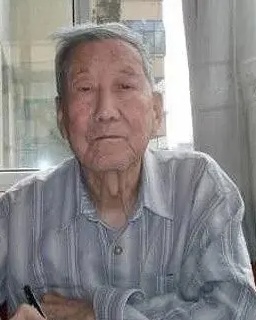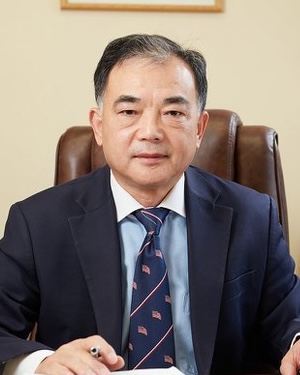Explore the creators
Showing 229 creators in the collection
229 creators
Hu Ping
Hu Ping (1947- ) is a writer and commentator based in New York City. Hu was born in Beijing in 1947. He graduated from high school in Chengdu in 1966. During the Cultural Revolution, Hu reprinted Yu Luoke’s articles in his own publications. In 1969, Hu was sent down to labor in the suburbs of Panzhihua, Sichuan Province. In 1973, Hu returned to Chengdu for part-time work. In 1978, Hu was admitted to Peking University’s philosophy department and later received his Master’s degree there. In 1979, Hu participated in the Democracy Wall movement and published his long essay “On Freedom of Speech” in the <i>Fertile Ground (Wo Tu)</i> journal. In 1980, Hu ran for election and was elected a people’s representative representing Peking University and Haidian District in Beijing.
In 1987, Hu started his PhD at Harvard. Hu was elected president of China Alliance for Democracy from 1988 to 1991 and was the editor-in-chief of the journals <i>China Spring</i> and <i>Beijing Spring</i>. Hu is currently honorary editor-in-chief of <i>Beijing Spring</i> and a managing board member of Human Rights In China.
Hu’s major works include: <i>On Freedom of Speech</i>, <i>Reflections on China’s Democracy Movement</i>, <i>Man’s Domestication, Avoidance, and Rebellion</i>, <i>Cynical Disease</i>, <i>Why Mao Zedong Initiated the Cultural Revolution</i>, <i>Upside Down Justice - China's Ethnic Problem and Democratic Transition</i>, <i>The COVID-19 Catastrophe - A Disaster That Could Have Been Completely Avoided</i>.
Hui Wen
Hui Wen, a native of Sichuan, graduated from Renmin University of China and was assigned to work at the Institute of Modern and Contemporary History of the Chinese Academy of Sciences. In the second half of 1960, Hui Wen, as a Communist Party cadre, went to Jianyang County, Sichuan Province as part of a working group on rural commune remediation, during which he witnessed the situation of peasants amidst the Great Famine. At the end of 1962, Hui Wen was reassigned to work at the Chongqing Party school. After his retirement, Hui Wen compiled a book on what he witnessed during his time in Jianyang, titled *Chronicle of Rural Remediation of Communes in Difficult Times*.
Jiang Qisheng
Jiang Qisheng (November 5, 1948-), a native of Changshu, Jiangsu Province, is a writer and scholar. Jiang was a Red Guard during the Cultural Revolution, after which he went to work as a farmer in the countryside. Jiang enrolled in the Beijing Aeronautics College in 1977, where he received his bachelor's and master's degrees in aerodynamics, and then taught at Tsinghua University from 1985 to 1988. He began his doctoral program in Philosophy of Science and Technology at the Renmin University of China in 1988.
In 1989, Jiang participated in the student movement, serving as a member of the standing committee of the student dialogue delegation and the standing committee of the Renmin University autonomous student union. In September of that year, Jiang was detained in Qincheng Prison, released without charge in February 1991, and expelled from Renmin University in June. After his release, Jiang became a freelance writer and has been a contributing commentator for Radio Free Asia since 2006.
Jiang has written numerous articles on human rights and social justice issues in China, and has been persecuted on several occasions. In May 1999, he was arrested and sentenced to four years' imprisonment for inciting subversion of state power, released in May 2003.
Jiang is the author of several books including <i>Civilian Report on the Situation of June 4 Victims in China</i>, <i>Notes from the Detention Center</i>, and <i>Lighting the Candle of Conscience</i>.
Jiang Xue
Jiang Xue (1974 -) is an investigative journalist. Originally from Tianshui, Gansu Province, Jiang graduated from Northwest University of Political Science and Law in 1996. Aspiring to write for the public good, she became a journalist based in Xi’an.
Jiang served as the chief reporter and later director of the commentary department of <i>Hua Shang Daily (China Commercial Daily)</i>, and later worked for <i>Caixin Media</i>. She published several investigative reports on issues concerning rule of law and social justice. Due to changes in the political environment, Jiang decided to become a freelance writer in 2015, running her own media outlet. She conducts interviews and investigations at her own expense and publishes reports on human rights and the rule of law. As a result, her media outlet has been subject to constant censorship. In May 2020, Jiang was taken away by the police on her way to the hospital to visit her mother, probably because of an article she wrote that criticized China's COVID-19 policies.
In 2019, Hong Kong's Today magazine published Jiang's article on <i>Spark</i>, an underground publication during the Great Famine in China. It is the longest and most extensive article she has ever written, totaling more than 40,000 words, and is considered the most authoritative written record about <i>Spark</i>. She also made a short film called <i>Snow’s Visit</i> with the Xi’an-based filmmaker Tiger Temple on her reporting for the essay.
During the lockdown in Xi’an in January 2022, Jiang published an article entitled “Ten Days in Chang'an,” referring to the ancient name of Xi’an. Describing the difficulty of Xi’an people in the lockdown, it attracted national and international attention and sparked heated discussion. The article was later taken off the Internet in China. She also wrote a widely publicized article on the 2022 White Paper protests called "Remember the Light the Young Have Shown Us.”
Jiang Xun
Jiang Xun (1947 - October 13, 2021) was a Hong Kong media professional. Born in Shanghai, Jiang worked for *Wen Wei Po* newspaper and *Literature Press* newspaper before moving to Hong Kong in 1994, where he served as senior special correspondent and deputy editor-in-chief of Hong Kong's *Asia Weekly*, as well as director and chief editor of Republic (Hong Kong) Publishing Limited. He was a member of the Hong Kong Writers' Association and joined the Chinese Writers' Association in 1993. Jiang died of an acute illness on October 10, 2021.
Jiang was the author of more than 10 books, and was the recipient of numerous literary and journalistic awards in mainland China and Hong Kong. Jiang had written reports on the inner workings of Operation Yellowbird, which helped the Chinese dissidents who participated in the 1989 democracy movement to escape arrest by the Chinese government by facilitating their departure overseas via Hong Kong.
Jin Hui
Jin Hui (1954-), a native of Tangshan, Hebei Province, is a writer. Jin graduated from the Department of Literature of the People's Liberation Army Academy of Art in 1986. Since 1970, he has successively worked as a coal miner in Kailuan, a soldier and a reporter in a military region, and a professional writer in the Literary and Artistic Creation Office of the Political Department of the Beijing Military Region.
He began to publish in 1975 and joined the Chinese Writers' Association in 1991. Jin wrote and published an article entitled "Memorandum on Three Years of Natural Disasters" in Shanghai's <i>Society</i> magazine, speculating that the number of unnatural deaths during China's 1959-1961 famine was about 40.6 million.
Li Jianglin
Li Jianglin (March 23, 1956 - December 24, 2024), a native of Nanchang, Jiangxi Province, is a writer and historian. Born into a red family, her parents worked for the Fourth Field Army of the Chinese People's Liberation Army, and became senior cadres after the founding of PRC. During the Cultural Revolution, Li's father was labeled a capitalist and exiled to a labor camp, and she was forced to separate herself from him and follow her mother to live in the countryside.
Li received her bachelor's degree in English from Fudan University in 1982, her master's degree from the Institute of American Literature at Shandong University in 1988. In the same year, she went to study in the United States, earning a master's degree in Jewish history from Brandeis University and a master's degree in librarianship from Queens College in New York. During her time in New York, she organized many cultural activities at the library in Flushing, making it a community hub for overseas Chinese. Li Jianglin was also the deputy secretary general of Independent Chinese PEN and a faculty member of Tiananmen University for Democracy.
She began to conduct independent research on Tibet in 2004, traveling many times to India and Nepal to interview the Dalai Lama and Tibetans in exile, and published many articles in <i>Ming Pao Monthly, Open Magazine</i>, and <i>Chinese Human Rights Biweekly</i>, among other magazines. She also wrote several books about Tibet, including <i>Tibet in Agony: Lhasa 1959</i> and <i>When the Iron Bird Flies: China's Secret War in Tibet</i>. She also ran a <a href="https://bloodundersnow.blogspot.com/p/blog-page_9488.html">Chinese-language blog “Tibet: An Alternative Reality,”</a> which contains more research materials on Tibet as well as articles by Li Jianglin.
On the Christmas Eve of 2024, Li passed away due to illness in her home in Georgia, United States.
Li Jinghang
Li Jinghang (August 1922 – September 28, 2016), a native of Tianshui, Gansu Province and Christian, graduated from the Mathematics Department of the Northwest Normal College in 1949.
In the fall of the same year, he was employed as a mathematics teacher at Tianshui No. 1 Middle School, and was converted to Christianity in 1950. In 1957, he was labeled a Rightist for his unwillingness to voice his opinions about the CCP and for being a Christian, and was exiled to Jiuquan, Gansu Province to work in a labor camp in Jiabiangou. In 1960, he was transferred to another labor camp in Gaotai county, where the conditions were even worse, and almost died there.
In 1961, he was released and resumed his work as a teacher at Tianshui No. 1 Middle School. In 1962, his label as a Rightist was lifted and he was rehabilitated in 1979. In 1980, he was transferred to Tianshui Teachers College (which was upgraded to an undergraduate institution in 2000) as a lecturer in the mathematics department. After retiring in the fall of 1987, he joined the church to serve full-time.
During his time at the church, Li wrote <i>The Journey of Grace</i>, documenting his personal life and his journey of faith.
Li Jinjin
Li Jinjin (September 1955 - March 14, 2022) was a native of Wuhan, Hubei Province. He joined the People's Liberation Army at the age of 15, and became a police officer in Wuhan after demobilization. In 1978, he was admitted to the Law School of the Hubei Institute of Finance and Economics (now the Zhongnan University of Economics and Law), and then to the Law School of Peking University, where he studied constitutional law. He returned to Wuhan after graduation in 1985 to teach, and then went back to Peking University to pursue a Ph.D. in Constitutional Law. During Li's doctoral studies, the 1989 democracy movement broke out, and he worked as a legal counselor for the Beijing Workers' Autonomous Federation. After being arrested and detained for 22 months in the aftermath of the June Fourth incident, Li traveled to the United States in 1993 as a visiting scholar at Columbia University; he then studied law at the University of Wisconsin, where he received his J.D. degree. Upon graduation, Li became a licensed attorney in the State of New York, focusing on immigration matters, and served as the president of the Hu Yaobang and Zhao Ziyang Memorial Foundation.
On March 14, 2022, Li was stabbed at his law firm, allegedly by a client due to disputes. He was taken to the hospital and died on the same day.
Li Rui
Li Rui (April 13, 1917 - February 16, 2019) was a CCP history expert and former secretary of Mao Zedong. Li graduated from high school in 1934 and was admitted to the Mechanical Department of the School of Engineering at the National Wuhan University in the same year. From 1936, Li became involved in a secret student group in Wuhan, which was affiliated with the CCP, before leaving Wuhan University in May 1937 to join the CCP, and worked on publicity. Between 1948 and 1949, he served as a political secretary to the CCP leaders Gao Gang and Chen Yun. From August 1949, Li served as editor-in-chief of the New Hunan newspaper and as propaganda minister of Hunan Province. In 1952, he was transferred to Beijing as director of the General Bureau of Water and Electricity Construction, and in 1958 he was appointed a correspondence secretary between Mao Zedong and the Ministry of Water Resources. That same year, he became vice-minister of the Ministry of Water Resources and Electricity.
In 1959, Li was labeled a Right Opportunist for questioning the Great Leap Forward, and was dismissed from the Party in March 1960, and exiled to a labor camp in northeastern China, before being transferred back to Beijing at the end of 1961. In 1967, Li was sent to Qincheng Prison and jailed in isolation for eight years for reporting on one of the leaders of the Cultural Revolution, Chen Boda. In 1979, Li was rehabilitated and became secretary of the Ministry of Electric Power Industry. From 1982 to 1984, he served as executive vice minister of the Organization Department of the CCP and director of the Young Cadres Bureau, and later as head of a leading group on CCP history, in charge of compilation of CCP’s organizational history. He retired in June 1995. Li passed away on Feb. 16, 2019 in Beijing due to illnesses.
Li published more than 30 books, some of which were on water resources, including *On the Three Gorges Project*. Li was an opponent of the Three Gorges Project, and in his article "*Accountable to History: Memories of the Launching of the Three Gorges Project*", Li discussed in detail the decision-making process of the project, as well as its potential social, economic, and ecological impacts. Li is the author of several books on CCP history, including *Records of the Lushan Conference*, *The Great Leap Forward: An Intimate Memoir*, and *Mao Zedong's Merits and Wrongs*. In addition, he was a supporter of the reformist magazine *Yanhuang Chunqiu (China through the Ages)*, where he served as an advisor and published dozens of articles.
